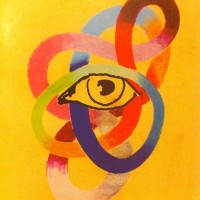If you remember something wrong, is the label “memory” still accurate? Does the label of memory necessitate a 1:1 correspondence with the past? If not 1:1, how much correspondence with the past is necessary for us to still be comfortable using the label of memory? More importantly, if we can talk about a memory being…
Posted on April 20, 2012
In consciousness, by Greg
Posted on January 9, 2012
In agency, consciousness, ethics, by Greg
Cognitive Philosophy is excited to host the January 9th edition of the Philosophers’ Carnival! The Philosophers’ Carnival is a roaming showcase for the best philosophy blog posts of each month. The entries in this edition span topics in mind, agency, ethics, language and more. Enjoy the show!
Posted on January 3, 2012
In consciousness, by Polo
How accurate are our perceptions of the world? Contemporary literature in philosophy of perception suggests that when our cognitive systems are at their best, they still fail to provide us with an accurate depiction of a given state of affairs. This truth can be terrifying for someone asked to report on their experiences in a court of law.
Posted on October 23, 2011
In consciousness, by Greg
Implicit memory is normally thought of as a type of memory where past experiences influence current thought and behavior, but without conscious awareness of those previous experiences. How does this work? Is there a “thing” in the brain we can point to and say “this is an implicit memory?” And is “memory” even the best…
Posted on August 29, 2011
In consciousness, by Greg
Some people say you should live without any ties to material possessions, that material goods replace the value of real valuable experiences in life. But material possessions interact causally with our conscious states, themselves causing us to have certain experiences, and allowing for interactions not possible without them. Using the role of nostalgic items in our lives, I discuss some interesting relationships between memory and the environment, and memory and consciousness.
Posted on June 19, 2011
In agency, consciousness, by Greg
Is it possible to behave in such way that you’re not being yourself? What is your true self? Your ingrained desires or your explicit values and commitments? And in a world where behavior and personality arise from neurophysiology, do we even still have room for the notion of a self?






